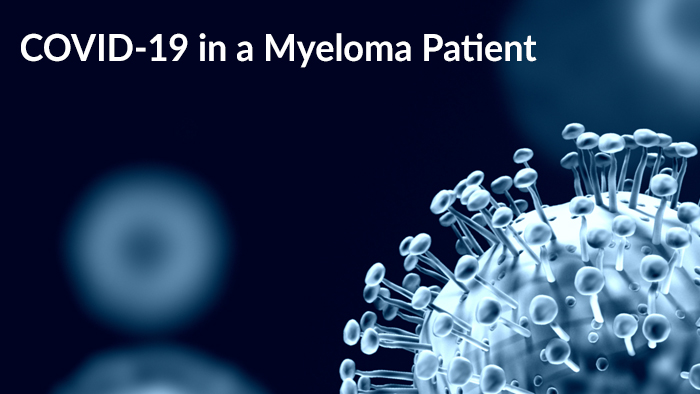Multiple myeloma patients are often treated with immunomodulatory drugs, proteasome inhibitors or monoclonal antibodies until disease progression. Chronic therapy in combination with the underlying disease frequently results in severe humoral and cellular immunodeficiency, which often manifests in recurrent infections. Here we report on the clinical management and immunological data of one multiple myeloma patient diagnosed with COVID-19.
Recent Content
- Daratumumab, Lenalidomide, and Dexamethasone Versus Bortezomib, Lenalidomide, and Dexamethasone in Transplant-Ineligible Newly Diagnosed Multiple Myeloma: A Systematic Literature Review and Meta-Analysis
- Bortezomib Off-Week Regimen Shows Promise for Reducing Toxicity in Multiple Myeloma
- Real-world treatment patterns for teclistamab and talquetamab in multiple myeloma (MM): experience from 609 patients
- LRP8-dependent cholesterol metabolism modulates mTORC1 signaling and apoptotic pathways in multiple myeloma
- Opportunities and challenges for MRD assessment in the clinical management of multiple myeloma
- A Real-World International Staging System (RW-ISS) for patients with newly diagnosed multiple myeloma
- How well do different chatbots respond to multiple myeloma treatment guidelines?
- Emerging Bispecific T-Cell Engagers in Myeloma: Promises and Hurdles
- Efficacy and Safety of triplet versus doublet regimens in patients with multiple myeloma: A systematic review and meta-analysis
- Venetoclax-based treatment combinations in relapsed/refractory multiple myeloma: practice patterns and impact of secondary cytogenetic abnormalities on outcomes

